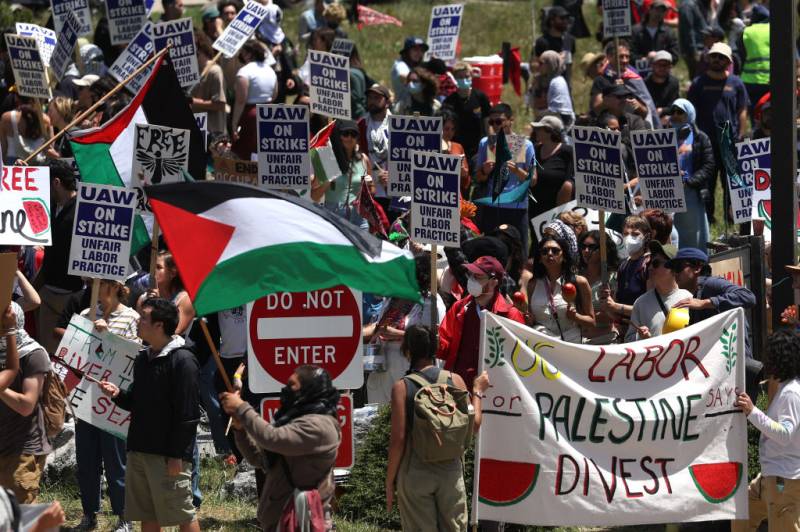The union, which represents 48,000 graduate students who work as teaching assistants, tutors, researchers and other academic employees on the 10-campus UC system, started its strike on May 20 in Santa Cruz. The strike has since expanded to UC campuses in Davis, Los Angeles, Irvine, Santa Barbara and San Diego.
Melissa Matella, associate vice president for labor relations, expressed gratitude for the order, saying in a statement that the ongoing strike would have set back students’ learning and possibly stalled critical research projects. Officials say the strike is unrelated to employment terms and violates the union’s contract.
But the union said it is protesting the treatment of its members, some of whom were arrested and forcibly ejected by police in demonstrations calling for an end to the war in Gaza.
Rebecca Gross, a UC Santa Cruz graduate student and union leader, said Friday they are surveying rank-and-file workers on how to proceed.
“The struggle is not over,” she said. “It really hasn’t been confirmed yet … that what we’re doing here is illegal in any way.”
UC Irvine law professor Veena Dubal, who teaches employment and labor law, said that the Superior Court judge should have left the decision to PERB.
“The issue was alive, still at the agency, and the judge ignored that,” said Dubal in an interview with KQED on Saturday. “I think that more and more employers will feel emboldened to not defer to the agency and go straight to court where they’re more likely to get the things that they want.
“I think it does whittle away at the authority of PERB, which is quite dangerous for the soundness of labor law in California.”
On May 1, police in riot gear ordered the dispersal of more than a thousand people gathered on campus to support Palestine and warned that those who refused to leave would face arrest. The night before, police had waited to intervene as counter-protesters attacked the pro-Palestinian encampment, causing injuries.
Pro-Palestinian protests have roiled campuses across the U.S. and in Europe as students demand their universities stop doing business with Israel or companies that support its war efforts.
Police arrested protesters at Stanford University after they occupied the office of the school president for several hours on Wednesday. Officials said demonstrators caused extensive vandalism inside and outside the building.
KQED’s Attila Pelit and Azul Dahlstrom-Eckman contributed reporting to this story.
